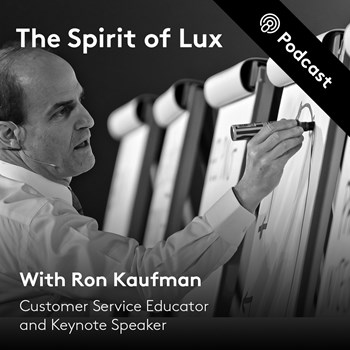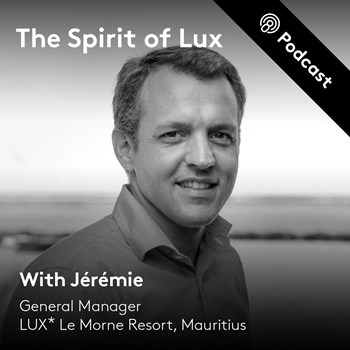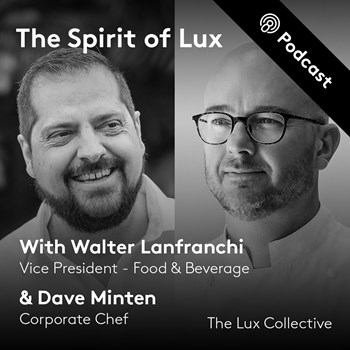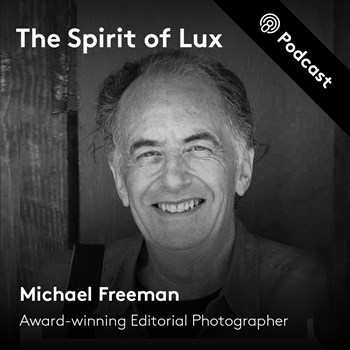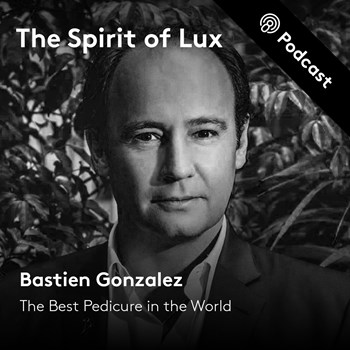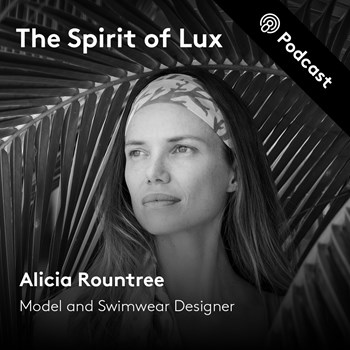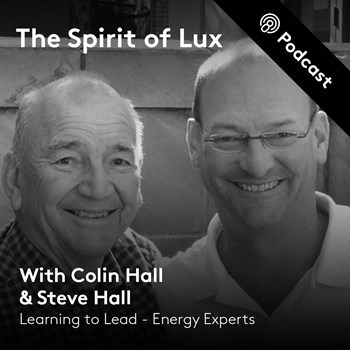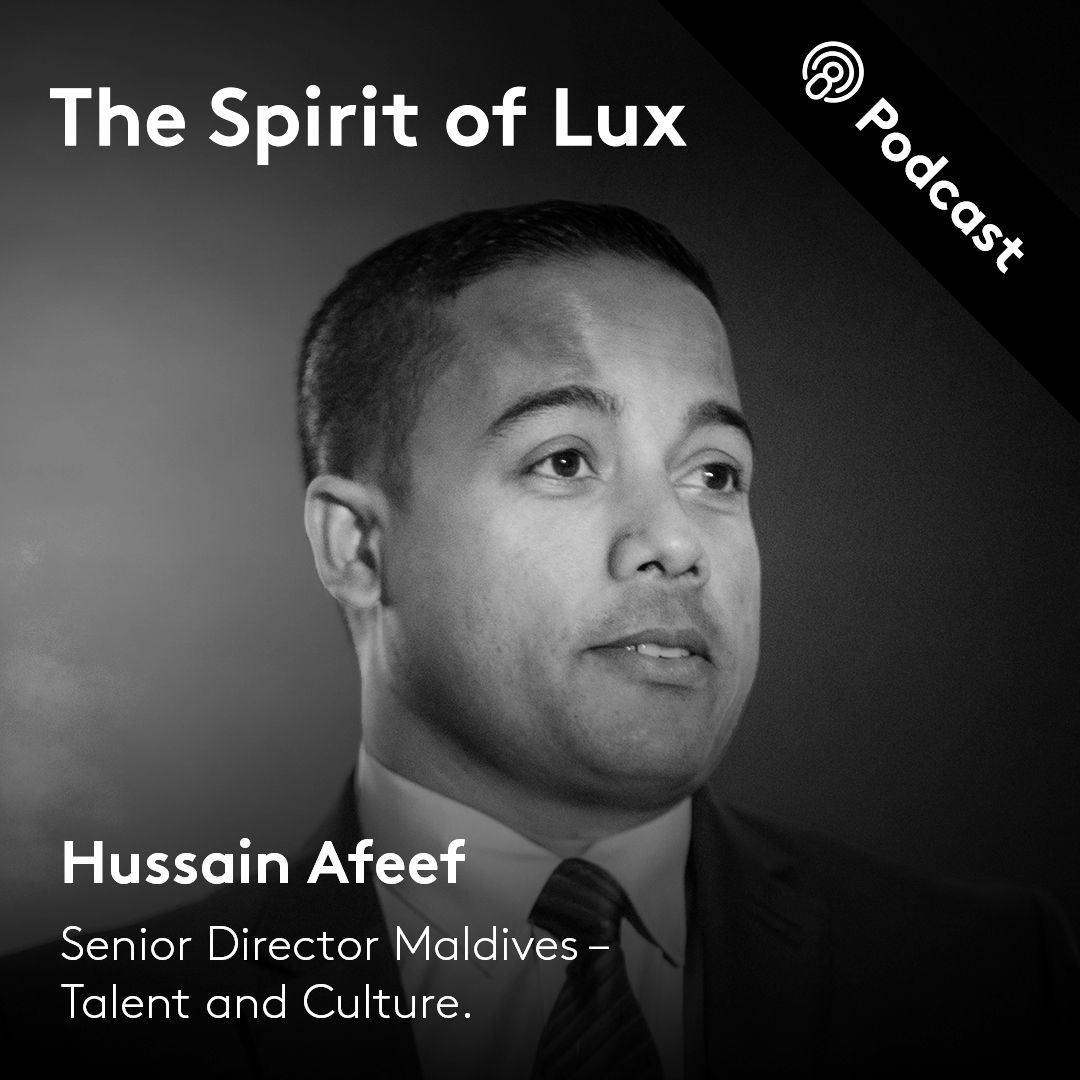 For this 8th episode, Paul, our host, chats with a longtime collaborator, Afeef Hussain, the very first Maldivian to be nominated “100 most influential global HR professionals” at the World HRD Congress 2016. Born and raised in the Maldives, Afeef’s skills as a speaker, coach, and runner have taken him around the world–including the Boston Marathon. In this episode, he recounts the success story that is the Maldives’ tourism, from its early days when just a few islands were populated by resorts to being the first destination in the world to emerge as the incontestable winner of the pandemic.
For this 8th episode, Paul, our host, chats with a longtime collaborator, Afeef Hussain, the very first Maldivian to be nominated “100 most influential global HR professionals” at the World HRD Congress 2016. Born and raised in the Maldives, Afeef’s skills as a speaker, coach, and runner have taken him around the world–including the Boston Marathon. In this episode, he recounts the success story that is the Maldives’ tourism, from its early days when just a few islands were populated by resorts to being the first destination in the world to emerge as the incontestable winner of the pandemic.
A Conversation with Afeef Hussain: Award winning life coach and human resources professional from the Maldives
Paul Jones: I am Paul Jones and you are listening to the Spirit of Lux.
Afeef Hussain: We should serve people, there is nothing better than that. And when I got that into my mind, I never looked back.
Afeef Hussain: The Maldives is the best destination. And this competitive advantage of products is just unbelievable. But I think what's truly incredible and the reason why there's success is the Maldivian people, the genuine hospitality.
Afeef Hussain: Whenever there's a situation or a crisis or a challenge, Maldives is one destination that actually comes out from it very fast.
Afeef Hussain: We want our people to live those values, not just a banner standing somewhere. So every team member is a representation of our vision, our purpose and values. And that focus from day one up until today is what made us very special and truly a property where people look up for
Paul Jones: Welcome to another episode of The Spirit of Lux. Today, I am joined by the first Maldivian who received the honour of being named amongst the 100 most influential HR personalities in the world at the World HRD Conference 2016, Afeef Hussain. Experienced in the areas of HR strategy, customer experience, quality management, talent, performance management and learning and development, Afeef has over 15 years of Hospitality Industry Experience and is currently the Senior Director, Maldives - Talent and Culture at LUX* Resorts and Hotels. There’s a lot to cover in this episode. Afeef explains how at LUX* Resorts his team works on the principles of providing superior service to have a sustainable competitive advantage. Grown-up in the Maldives, Afeef also shares how just a collection of islands has changed in the last 25 years becoming one of the world’s most beautiful destinations. Afeef, when I first went to the Maldives, which would have been towards the end of the 1990s, I found very few islands that were developed as luxury resorts. Probably, you could count them, on your one hand, not two hands. And I was quite mystified how the Maldives tourism product actually worked and functioned because everybody flies in to Male, which is the capital city and where the majority of the Maldivians live, and the airport is a short boat ride away from Male. And then the hotel resorts all have the unique delight, shall we say, of occupying their own island. Now, many people I know would relish having their own island. So, the fact that hotels were able to develop on their own island was something truly unique. And then I couldn't figure out how to get people to the different hotel islands. And then, of course, we had the arrival of the sea plane, I think they originated from Canada. And that, of course, facilitated that. And some of the islands which are closer to the main airport were, of course, connected by boat. But of course that's in the long distant past. And nowadays, one equates the luxury resort industry with the Maldives. And you've had a huge part to play in the development of your country as a luxury hotel or luxury tourist destination with many luxury hotels. So, Afeef, what I would like to know is where were you born? Where did you grow up? And how did it all start for you in the hospitality industry?
Afeef Hussain: Thank you very much, Paul. And I am very pleased that we're having this conversation today. And thank you very much for inviting me as one of the guests in the Spirit of Lux Podcast program, which is really a fantastic initiative we have started. You have put the whole Maldives tourism industry and how it started really in a nice way. And it's amazing how we started back in the days and where we are today, it's just incredible. I was born in Addu City which is one of the most southern point in the Maldives. And what's interesting is that Addu Atoll or the Addu City actually had quite a link with the hospitality business even way back when we were under the British colony. Because back then, we learn this hospitality and how to look after people and the way to treat people from the British people who are living in there. And my grandfathers, grandmoms, they all had that. And I grew up in that for most of my life up until I was 16 years old. And I have to say that I learned the hospitality and the spirit of serving people from my father, because he was a fisherman, and we were a fishing family that mostly generated the income through fishing. And I recall these my father, he would go for fishing on a daily basis, obviously, except Friday, and he would bring the daily catch. And as the capital of the board, he would get a certain amount of fish, which is obviously more than what the crew gets, because he's the captain. And what's amazing and what I have seen was always that he would bring the fish or the catch up that day and the first thing he would do is that he would allocate a number of those fishes to all of our neighbors. So, probably the few houses within our house block will actually get it. And then also, he would actually select a part of that and he would take that to our family members who are a little bit far away from the house. So, he would get on his bicycle and would drop them. And when I saw what he was doing, I thought, "Oh, my god, this is amazing." And obviously, my father does not have any formal education but he had the spirit. And I realized, okay, this is really wonderful. And the other story is that my father, he managed about 12 crews on his fishing boat. And I still recall these incidents and moments when, and back in the days, we don't have telephones. So if one of those crew members' family members get injured or hospitalized, they would come to our house and tell our father, and we hear those stories. And my father, the first thing he would do is he would go to the hospital, and he would be there for them. And some days, you don't come home, and we know that he's with one of those crew. So, that's where I started to learn that spirit of service. And I realized that, okay, this is what we should be doing. We should serve people, there is nothing better than that. And when I got that into my mind, I never looked back. And I believe where I am today, what I am today is a true reflection of what I learned from my father.
Paul Jones: That is wonderful, Afeef. And, obviously, you living in the Maldives, and growing up in the Maldives, you clearly have your country at heart, and you're very proud of how your country has developed. And I remember when we first met, it was while we were developing that magnificent luxurious resort, known as Reethi Rah. And from that, I believe, I think it's fair to say, started what I would call the second wave of development of luxury in Maldives, I think the investment in that hotel was more than $200 million. It was a considerable amount of money. And I think many, many people were very skeptical about the commercial success of that property. But I think that it is fair to say that Reethi Rah has been one of the most successful resort properties in the world, not just in the Maldives. And still today, I believe that it occupies that crown. And you had a lot to do with that development, Afeef. Please share with us some of those memories, as you think back to those days.
Afeef Hussain: It was one of the extraordinary projects that we did in the Maldives. And I remember when I was in high school, that was in 2002 when I was about to finish my high school in June, we're here this Reethi Rah and then obviously the ownership company building in Male. It was quite incredible to hear those stories. And I always knew that I wanted to work for such a project. And obviously after my highest studies when I came back, it was right into the preopening in 2005 and then right into 2016. I was fortunate to be employed by one and only, and I must say that rightly as you mentioned that this property not only really redefined what Maldives had as an opportunity, because what really happens in the Maldives is every time when we tried to do something, could be for an investor, could be any company, there's always this mindset around, "Well, it won't work, it may not happen," and I think what we did in building that extraordinary property, with the level of service that we promised we committed, amazing restaurant of concepts, it was one of the best. And up until today, it is really considered as one of the best. And I believe they have set those standards and everybody else's following.
Afeef Hussain: I always say that those kinds of projects and involving getting the opportunity will really redefine your career. And what I've learned from that, the opportunities, and really the mindset that specifically into this point around the experience can make a difference and the power of creating those cultures, genuine hospitality-- I mean, it wasn't easy, we had lots of challenges, even at the early stage. But that's what made that property amazing because those challenges help us to rethink how everything was done in the Maldives, whether it was related to the guests experience, the employee engagement. I remember, I love sports, but I was never a good player in any of the sports, I played volleyball. But I remember I became one of the best volleyball team in the history of the Maldives, even up until today, and I had got that opportunity from Reethi Rah. Paul, can you recall the days where we used to have those volleyball games? We play with all the other resorts, we win the championships, it was just incredible. And I would like to also link that with a message to the young people that those are the kind of projects you want to get involved. I'm sure in the Maldives and other places, there will be. And if we get involved in that, it will redefine your leadership, your career, everything else. And Paul, your leadership, and of course, back to the owner, Sol Kerzner and the team, we learned so much. And not just me, I think there are a lot of Maldivians who's seen that kind of leadership role in many other resorts. We helped them to really put a very good step in their future career and we should all be very, very grateful. And I'm grateful too.
Paul Jones: Well, well done. And then of course, we reconnected when we started a new hotel group at the time, it was Naiad. And then we rebranded about 11 years ago into LUX*. And then you joined and you were able to contribute to the property in the south area Attol. And of course back in 2016 when we redeveloped the property and created it into, I believe one of the finest luxury resorts in the Maldives, it is stunning. And again, you played such a pivotal role in that development. And Afeef, you are extraordinarily confident, articulate, and you represent your country very, very well. You must have had a number of mentors and people who've, apart from the people you've mentioned, connected with Reethi Rah or LUX*. But tell us about the people that have influenced your career to give you that confidence and that eloquence?
Afeef Hussain: Yes, I am someone always, especially from my high school days, I remember following good leaders, and I love following good leaders more than following one thing that they do. And I was very fortunate at the very early stage of my career when I was studying in Malaysia, and I was doing internships in Singapore, Malaysia, and I've learned about Ron Kaufman. And I met him that. I remember the first time taking a bus with just 50 ringgits in my pocket, taking the bus from KL to Singapore across the border. And attending a conference where in Singapore, they used to do an event called as the National Achievers Congress, where they invite a lot of speakers and local speakers, and I remember meeting him. And when he was presenting on the stage, I said, "Wow." He's teaching about service and leadership, and this is really nice, and he's impacting people. And I made a commitment that I'm going to get to know Ron, worked with him. And that was in 2003. And I remember sitting in that hall with Ron, I made a commitment to myself that one day, I'm going to bring Ron Kaufman to Maldives and host a public event. And since then, we have done that, in fact, few events. In fact, in 2018, we had a very successful event with Ron in the Maldives when we started. We didn't even have any way to do it but we made it. We had a full house. And I believe that over the years, he really helped me to shape who I am today, given very direct feedback. In fact, there were days when I would present, he would be in the audience and give me feedback on how I can improve my communication, how did my presentation go. It just been an incredible journey.
Afeef Hussain: And the next thing I'm going to say is, not just because you are my CEO and we're on your podcast, but truly, you have played a very big role, Paul, in defining how I see people and leadership. I always love good leadership. And I remember the day when I came to LUX* South to meet you on August 9, 2012. And I met you, and of course, we've known each other before, but I met Dominic and we were in his office and I've known Dominic before, and he told me, he has met me before when I was doing a quiz night in restaurant and he was staying there, but I don't recall meeting him in person. But I've known him because he was very well-received among the locals as someone who supports locals and develop their mindset and community. And he was a great contributor to the Maldives industry for being here for a longer time. After I spoke with him, I said to myself, this is the type of leader I would want to work with, because he had this leadership mindset of saying, "Afeef, I know what your strengths are, and here are my challenges. Help me to get better." That's always we discussed, I recorded conversation very well. And the rest is history. So I have to say that you have been a big mentor of mine too, Paul, and really, your leadership and how you challenge us helped me to learn this and challenge my team here. So, I will definitely credit that. And of course, with my 10 years, in fact, August 8 is my 10th year with LUX*. Very pleased with the company.
Paul Jones: Congratulations.
Afeef Hussain: Thank you. And I'm forever grateful. And Dominic, I suddenly see him as a mentor over my last year because then what I learned from him and his excellence and operation. And specifically, I learned when I joined LUX*, I did not have a lot of experience in operational excellence, I would say I learned the service excellence from Ron as he mentored me. Ron taught me the service excellence part and you taught me the leadership excellence part, and Dominic has the operational excellence. So, I am very grateful. And that's why I think I link back to the initiative where I said to this response that I love working for great leaders, and that's what I love doing because those leaders help us to get better every single day. So, I would say it's been a great journey so far.
Paul Jones: Well, it's been very rewarding seeing you grow in leaps and bounds. Afeef, Maldives is considered today as the number one resort destination in the world. What's the secret? Why? How? What is it? Is it the islands? Is it the people? Is it the food? Is it the history? Is the culture? All of the above? But let's get to the real nuts and bolts of it. What is the secret of the Maldives?
Afeef Hussain: Yeah. The Maldives tourism industry started in 1972. And one of the secrets is that earlier we said regarding the project of Reethi Rah, there's always this tendency around the word saying, "Well, it cannot be done." I remember in 1998 when Hilton Conrad was at the time, Wrangel Island was trying to build the first underwater restaurant, even the company who manufactured the restaurant in the US said, "Well, we can do it. But I don't think you can actually sink this into the sea and make a restaurant out of it." But today it is one of the best restaurants. So, Maldives have taken this boat decisions of doing what other people won't able to do. And obviously over the years, we have had incredible properties and all the best brands out here now, with the opening of Ritz-Carlton recently. The Maldives is the best destination. And this competitive advantage of products is just unbelievable. But I think what's truly incredible and the reason why there's success is the Maldivian people, the genuine hospitality. And most importantly, in the Maldives right now, there's 157 resorts. Each resort, when you go there, obviously one can look at and say, "Well, your product is not as great as the other resorts product." But people in those islands are just as genuine and there's always this commitment that they will do their best, that they will give their best, and guests can see this. And there's also one thing that we have seen. Whenever there's a situation or a crisis or a challenge, Maldives is one destination that actually comes out from it very fast. I recall the time of tsunami that hit Maldives in 2004, like many other Southeast Asian countries, and how we bounced back from it was just incredible. So, these things actually give a good view to the rest of the competitors and we don't sit back and wait. I have to say that Maldivians and the Maldives, and the leadership team regardless of which leadership team we have in the country, as the General Administration, there's one thing that is common, which is we do not play by this mindset of wait and see, which I know is something you always advocate. And I remember when we were, of course, having the weekly COVID response team and I remember even sharing that with some of the senior leaders in the country in one of my meetings is that, we have to show to the world that we are not a wait and see mindset. We are going to observe, but take action. So, these things actually help the country really to be one of the best practices and even better practices for most of the other destination. Maldives has not had a very good ride in terms of its political journey and things. But I think we've come out really well. And we have shown to the world that look, challenges are inevitable, but we are going to come out from it, regardless of what it is. So, this core element of people and their mindset and the leadership ability have actually brought this industry to one of its best. And definitely the future looks quite incredible. I would say.
Paul Jones: Yeah. Afeef, I absolutely share your opinion. Hospitality the world over is about people, and certainly the Maldivians have shown their unique ability to offer this wonderful hospitality that is different. It's different to other places where we operate like Mauritius or Reunion in the Indian Ocean-- very, very different. Different people, different cultures. You talked about mindset. Different mindset, but definitely without question, there is a 'can do' attitude that is throughout the entire population in the Maldives. I've never met any Maldivian who I would describe as being lazy. They are always up for it. They're up for the challenge. And yes, Maldives has been through many, many challenges. I remember being in Mauritius, I think it was just before Christmas. And I got word of the tsunami. In fact, the general manager of the hotel, he called me, he actually took a boat out in order to get reception, he was with a guest who had a satellite phone. And we were talking, and I tell you, I was on the next plane out of Mauritius and I flew. I was there very, very rapidly. I think I was there within two days of getting the news. And I also knew and if you remember those times how it was quite scary because it was never over until it was over. We were getting reports of there was these rising tides coming in India and Sri Lanka, and we're going to get it again. And I was on the island by that stage and living through all of that. In a way it was very important for me to feel what it's like and to understand all the precautions that we have to take in the islands. And to ensure that we have everything that we need. I mean, guests used to remark, why do we have life jackets in the room?
Paul Jones: Well, look, let's be fair. Tsunami, it's a once in a lifetime event. It's happened and we would never wish for it to happen again. So it is a very rare occurrence. So in Mauritius, we have cyclones. And in Maldives, we've had that. But we've all been victims to the pandemic. And in fact, we were only discussing this yesterday, how effective Maldives leaves has been, as a country, as a destination, in dealing with the pandemic, and in resilience and determination to bounce back as you put it correctly, to open up, but not just open up anyway, but open up with a bang. Make sure that all the hotels have everything they need and they get up and running. Make sure that the maximum number of hotel team members are vaccinated and their families and the population and you've done very, very well with that. And the most important point, the most critical factor, we've discussed this on many, many occasions, is the air access. And that's where Maldives has been so effective in attracting back. All the major carriers were there before and more, which is incredible. And that has enabled Maldives to really come back and exceed the numbers the Maldives was enjoying in 2019 pre pandemic, which is simply remarkable. And certainly when some of the markets release the Maldives from their lists to be fully accessible, then I'm anticipating, and I'm sure you are to record numbers in the Maldives, I think it's fair to say that the upcoming season, which really starts around about now, October, November, leading up to the Christmas, the New Year, then up through those very busy, early months of the New Year '22 are going to be very strong for the Maldives. So, tell us how all of that happened. What is the political will? How did it work? And how can other destinations learn from the Maldives as to how to do it right?
Afeef Hussain: Yes. And I think I like to start that initially in 2019, obviously, December when we started hearing about this virus, I believe our health experts also didn't probably have a clue at the time, like many other countries, but they already started preparing. And then we had a very busy New Year into January and that's when the Maldives started realizing that this is going to shut down the industry. So, obviously the health authorities put together everyone. And I remember I spoken with one of the largest health conferences in the Maldives in December 11 in one of the resorts, and that was when obviously we were hearing about this whole thing. And 28th of March, Maldives sector closes border due to the situation for all the countries or the visas on arrival was suspended. So it was really tough time because obviously in the Maldives, it's 80%. And in fact, out of 10 people that are employed in the workforce throughout the country, every sixth person is representing hospitality industry. So, you can imagine the magnitude and the impact it will have in the livelihoods and the economy of the people. So, from the days that they made a plan that they're going to reopen, and obviously we set a target to open in July and early June, they decided to open on 15th of July. So, we were making resorts, getting ready to open, people were coming back, trainings were done. It was a collective effort. And this is one thing unique in the Maldives, which I believe is just unique in most parts of the world but I wish it's always there. But when there's a challenge or a crisis, the unity you see among the local population is just incredible. And they all come together, they all contribute, and there's great self mindset and you see selfless service among everybody else.
Afeef Hussain: So, we came together, we opened on 15th of July 2020, and we never looked back thereafter. I mean, we had flights that are coming, tourist arrivals were increasing. In fact, last year December, most of the Maldives resorts even including LUX* South, it was the best New Year's we ever had in terms of number of guests. That's just incredible. Then we had this period of January of this year. And if we look at August, we had highest number of arrivals compared to 2018 and 2019 which is pre pandemic. And all this goes down to the leadership and they all knew that this is the way to move forward, and we did not wait for other countries with similar geographical features. We didn't say, okay let's wait and see what Mauritius will do or what Reunion or Madagascar or maybe even some other islands or countries in Caribbean to do. We said we are going to set the standard. So, we worked with the airlines and these airlines were ready to operate in the Maldives 15th of July. So, our leadership team of tourism ministry, the task force by the president, they went to them and said, "Look, we want to open the 15th of July. Can you operate two airlines tomorrow because if we don't have the airlines, we can't bring people. There are people who will travel. As we speak today, we have daily 38 flights, traveling to Maldives, and most of the airlines, their capacities are always 60% and above when they land to the Maldives. So, it's been an incredible journey. And I think that mindset of the leadership that we are in crisis, let's work together, make it happen. And that's always been unique, whether it was tsunami or pandemic, or even in 2008 and 2009, when we had that economic recession around the world. We had initiatives whereby we came together and try to bring the economy back. So, I think that's what you see in the Maldives. And that was really the success story of where we are today.
Paul Jones: That's incredible. 38 flights a day. My goodness! That must be one of the busiest airports in the world today. In fact, we should check that because there are not many airports that can boast 38 flights?
Afeef Hussain: Yes. And Paul, I remember, I haven't actually been to Male since March last year. So I went to Male for the first time to get my passport and few meetings. And I've seen those flights, and that was a Sunday, very busy. There were at least 17 aircrafts in the airport and parked there. And I thought to myself, this is just incredible. And I remember feeling how grateful I was to seen those aircrafts. Qatar airways had 4 aircrafts. So, I think it's a great sign that things are going to get better.
Paul Jones: We're very fortunate that in fact Maldives had already started all the improvements at the airport and completed the majority of them. I think most of the improvements have been done.
Afeef Hussain: Yes, yes. And the airport, I mean, there's a lot of construction going on, but they have made some great changes. And I believe this festive, they will make even better changes because we're expected to be the busiest festive, probably in the last 10 years’ time as per the records that ministry sees from the forecast. So, they are going to make some changes, and hopefully by 2022 mid or end, all the visitors are going to see, probably one of the best airports in this region.
Paul Jones: Turning to your place of work, LUX* South Ari Atoll, you have been responsible for building a world-class team. How did you do that?
Afeef Hussain: So when I joined in 2012, and I remember the first day of the resort going around, and people greeting and they're really nice. Obviously, there was some who knew me, but majority didn't know me as a person, they just knew my name. And I remember making that commitment by myself, I've got this place, and people are amazing. If we know that the people have that attitude, everything is possible. And I remember creating the strategy with Dominic and the team, obviously using the LUX* culture and Ron's methodology. And the first three months, I did not try to make any huge change with the leadership team, I was observing, connecting with people getting to understand what they would contribute. And we put a plan together using the 'up your service' methodology. And obviously, the key was the LUX* culture that we promised from 1st of December 2011, when we launched the brand and bringing the people and telling them, "Look, we are going to create something amazing. We're not going to be the best product in the world but we are going to be a competitive product yet the world class service." We committed, and everyone in their mind, they said, "We are going to create this world-class service." But the challenge was not many members knew how the world-class service looks like. So we created this program. So we're teaching them, we were having them experience for the world-class service is. And they realize our TripAdvisor is going up, they knew it was because of them. They knew it was not because of the beaches, they knew it was because of them. We made them believe the power they have within them. And I always say even now for the new team members who join us that within you, you have the power to make or break our culture. So you then teach them what you need to instill this mindset. And I remember those team members and leadership trainings, it was just incredible. So we did a lot of things to keep it going. And the result we experienced today and the culture we see here is just because of that relentless effort of from day one, we knew what we wanted to create, but then we keep evolving and doing that. And I believe this is really what we need to focus on-- the power of the vision, the purpose and values, and our culture. And I think is a very relevant point as we talk about it. Obviously, we do have the posters and the balance of our values. But I always say that we want our people to live those values, not just a banner standing somewhere. So every team member is a representation of our vision, our purpose and values. And that focus from day one up until today is what made us very special and truly a property where people look up for. And they always check what we do at LUX* Ari Atoll because we always set not just best practice, better practices that people were to follow and keep doing it. And it's just an been incredible journey. And I think we have a lot more to do. Given that we went through the pandemic last year, the experience of guests, what they want and anticipate is different. So we have a lot more work to do, I would say.
Paul Jones: And Afeef, you're training for a marathon? How many kilometers a day are you running as you prepare for that event in October?
Afeef Hussain: Yeah. I did my first marathon in Singapore in December 2019. And obviously, last few years, I ran only on the island here. It's great island to do marathons practice. So, I usually run six days a week. So every day, minimum is six kilometers. But on a week, I would decide to-- let's say for example, today's Wednesday, so I'm going to do 10 kilometers. And then on Sunday, I'm going to do 15 kilometres. And obviously closer to the marathon probably five days to the marathon, I would end up a one particular day doing 32 kilometres, which means I'll have to wake up at two o'clock in the morning when everybody else is sleeping, and I'm going to do it then. And I love doing that. And I think it's just very happy, because I'm probably the only one person who may have done most of the run on the island, because I run every day on this island, and it's just a great route to practice. So, it's going to be a wonderful thing.
Paul Jones: And the marathon is where?
Afeef Hussain: The marathon is on 9th of October. It's in Boston. So, that will be the marathon I will be doing and it's just going to be incredible. And the moment from what I see, it is still on, the event is still on, but even they decide if they go to watch or people will be required to run wherever they are, and then upload their information. So in that case, I'll be doing the run on the island if I won't be able to travel and be there. But we'll make it happen somehow.
Paul Jones: Well, that's fantastic. Many people dream about running the Boston Marathon. It's not an easy one to be fair.
Afeef Hussain: I remember you did one in New York.
Paul Jones: Oh, yeah. I've done a couple. New York wasn't that easy. Chicago was very flat. In Paris, we drank wine in Bois de Boulogne during the marathon. It was quite funny. I haven't done one recently. I still wanted to do Berlin because it is a flat one. Maybe. I'm working on my cardio vascular fitness to be able to do that one day. Afeef, have you had any disappointments in your life? And how did you deal with them?
Afeef Hussain: I have had a lot of rejections in terms of wanting to speak in a particular event and not getting the opportunity. I remember my first international speech was in Singapore in 2011. And I wrote them, I keep on writing them since 2007 to give me an opportunity to speak in the HR conference, which is the largest HR gathering in Southeast Asia. And 37 times rejected, and 38th time, I got onto the stage. I've never given up on some of those things. For example, I spoke in conference in San Francisco, which is a culture summit, all the likes of Facebook and they all attended this event. And that event, my first time there, they said, "Well, you're from the Maldives and we don't see many Maldivian speakers." I said, "I could be the first one. Who knows?" And on the sixth time, they gave me the chance. But I think apart from that there have been many disappointments, for example, trying to do things with the team because you have a certain expectation but they are not able to deliver. So, what I've learned is that you have to bring them to your level. So you teach them, you guide them, you make them aware. And one of the lessons I've learned is that the best way to avoid the disappointment is that make your people aware of what your expectations are and what you're planning to do. So, one of the things I've been doing in the last many years, every Monday, in LUX* South Ari Atoll, I leadership article to our leadership team. And I remember yesterday, I sent an article about, there's this thing that we as leaders say sometimes, "Oh, it's not a big deal." The phrases we use have a big impact. So imagine if somebody comes to the big guy, if there's a guest complaint, and a senior leader says, "Well, it's not a big deal." Well, if the team hears that, every complaint will become it's not a big deal. So, the idea is not to use such kind of words. So I've been doing that consistently. So, this way, you avoid disappointments. But I think I always know what I want and I always keep that in my mind. And if that's what you want, then you have to just do it. And I think one of the things I don't do is I don't give up. I truly believe in it. We put the effort and we'll get it done.
Paul Jones: Well, if you're a marathon runner, that will always be a hallmark of your mindset.
Afeef Hussain: And you're so right, Paul, because now, I remember the challenges we had at LUX* South during the pandemic. Every time when that happened, I said, "If I could do 42 kilometers in Singapore in that scorching hot weather on that day, I can do this." So, that is the standard now.
Paul Jones: So, Afeef, you're a very ambitious young man. What is your vision for Afeef in the next 10 years? Are you still going to be running marathons? How do you see yourself evolving?
Afeef Hussain: Definitely keeping healthy and staying at a very good mind is one of my ambitions. For marathons, there are the a few places I would like to do my marathons Tokyo is one of them and I have been following the BMW Bali marathon. I didn't know that. So maybe now I should check and try to get a slot there. Chicago's in my list and I tried Chicago before, but I didn't get a slot yet. But I think the most important thing is that I always see a better world and I'd like to contribute to that, making an impact in the lives of people. So there are a few projects that I would like to start and one of the things I wanted to do is that probably in the next couple of years to voluntarily train 10,000 people in the Maldives on value based leadership. Because I believe if people have the values within them and help them to identify. They will be better. And this is something quite missing in the Maldives in general. So, I would like to do that, not just to Maldives. So, I would like to keep on adding value to people impacting and making time to let people understand the world is better than what they see on the news at times. And the world will only be better if they do their part. I recently read a book called Give and Take by Adam Grant. And a lot of people think that to give, it has to be something bigger or something amazing or they need to be rich. You can give even if you are just in a very line level job in a company, and you can give by being nice to people on the road by sharing care and compassion. And all these kinds of things, I think will make a big difference. So that's how I see my future. And of course, wherever I am, I will keep on doing that. Because I think having a full-time job doesn't necessarily limit your mindset and your ability to add value to people, and I love what I'm doing and serving people. And I think that's what I'm going to keep on doing wherever I am.
Paul Jones: And of course, Afeef, you teach care, or as Ron Kaufman, your mentor, describes it as careology, and you also teach people how to care for themselves. How does that work for you in the daily setting? And what is the reaction of your team members to that?
Afeef Hussain: When we started this way, learning from Ron Kaufman, I have to say that in the beginning, he was quite interesting how he brought that up. And I did not think in that way before, I have to be honest. And now, it's just incredible. I'll give you one example. When the team is about to go on leave. Obviously, I know when they're going to leave, so before, I wouldn't meet them. Now, every single team member who goes on me, the day they depart, I would meet them in person, not Viber, not WhatsApp. And I bring them to my office and I see them and sometimes it's funny because they just wonder why they are I'm asking them to come to the office, especially at the beginning because they will say, "Did I do something wrong?" "No, no, no, I just want to see you." So when they come to us, and I tell them, "Look, I know you are going on leave, I just wanted to wish you well. I want you to know that we want you to be back safe. So please look after yourself." So it's a face-to-face conversation and just one minute of conversation. And everybody now talks about this, and they said, "Oh my god. Did you go and see Afeef, because he's going to talk to you before you go on leave?" The other thing is, when the team member is going on leave, I keep track of. Because I know their ticket, and I know what time they will return. I will send them a message and say, "Hi, this is Afeef. I just want you to check on your see if you reach home and enjoy your time with your family." Now, that's careology. Every time you do this with team members, you do end up with a whole level of new relationship with them and they know they can trust you. And obviously this also helps retaining of people, especially the key talents that we have. And these are many examples. And I think that is the level of care we need to implement. It's not just the big things. I think big things we do very well. Small things in care are what we need to focus on. And that is not just our brand and the company, I think the whole worlds needs to focus on those small things because it matters to people. And that's what I have learned in this whole concept of careology and what matters to people.
Paul Jones: Afeef, you are a remarkable young man. I am sure that everybody listening to this podcast will put their hand up and say, "I want Afeef as my boss." Afeef, thank you so much. It's been a delight, and well done. And good luck for the marathon and keep doing what you're doing. It's very, very successful.
Afeef Hussain: Thank you, Paul. It has been a wonderful conversation we've had and get to connect and really share what I'm passionate about and share a common interest around what the world needs, in fact. So, we had a great conversation. And to all the listeners, I'm sure you enjoyed the conversation I have had with Paul and the questions and the various points. And always happy to serve. And hopefully, keep sharing this message to the world. Thank you very much.
Paul Jones: Thank you, Afeef.
Paul Jones: Thank you for listening to the Spirit of Lux with me, Paul Jones. If you liked what you heard, don't forget to subscribe to our channel, on Apple podcast, Spotify, or wherever you listen.
